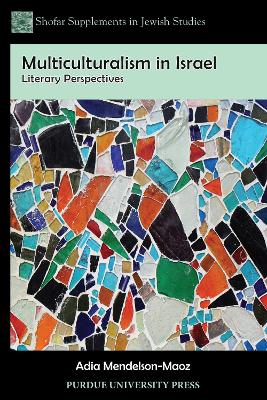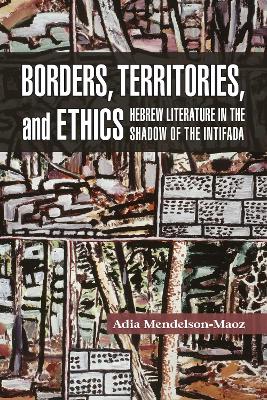Shofar Supplements in Jewish Studies
2 total works
By analysing its position within the struggles for recognition and reception of different national and ethnic cultural groups, this book offers a bold new picture of Israeli literature. Through comparative discussion of the literatures of Palestinian citizens of Israel, of Mizrahim, of migrants from the former Soviet Union, and of Ethiopian-Israelis, the author demonstrates an unexpected richness and diversity in the Israeli literary scene, a reality very different from the monocultural image that Zionism aspired to create.
Drawing on a wide body of social and literary theory, Mendelson-Maoz compares and contrasts the literatures of the four communities she profiles. In her discussion of the literature of the Palestinian citizens of Israel, she presents the question of language and translation, and she provides three case studies of particular authors and their reception. Her study of Mizrahi literature adopts a chronological approach, starting in the 1950s and proceeding toward contemporary Mizrahi writing, while discussing questions of authenticity and self-determination. The discussion of Israeli literature written by immigrants from the former Soviet Union focuses both on authors who write Israeli literature in Russian and of Russian immigrants writing in Hebrew. The final section of the book provides a valuable new discussion of the work of Ethiopian-Israeli writers, a group whose contributions have seldom been previously acknowledged.
The picture that emerges from this groundbreaking book replaces the traditional, homogeneous historical narrative of Israeli literature with a diversity of voices, a multiplicity of origins, and a wide range of different perspectives. In doing so, it will provoke researchers in a wide range of cultural fields to look at the rich traditions that underlie it in new and fresh ways.
Drawing on a wide body of social and literary theory, Mendelson-Maoz compares and contrasts the literatures of the four communities she profiles. In her discussion of the literature of the Palestinian citizens of Israel, she presents the question of language and translation, and she provides three case studies of particular authors and their reception. Her study of Mizrahi literature adopts a chronological approach, starting in the 1950s and proceeding toward contemporary Mizrahi writing, while discussing questions of authenticity and self-determination. The discussion of Israeli literature written by immigrants from the former Soviet Union focuses both on authors who write Israeli literature in Russian and of Russian immigrants writing in Hebrew. The final section of the book provides a valuable new discussion of the work of Ethiopian-Israeli writers, a group whose contributions have seldom been previously acknowledged.
The picture that emerges from this groundbreaking book replaces the traditional, homogeneous historical narrative of Israeli literature with a diversity of voices, a multiplicity of origins, and a wide range of different perspectives. In doing so, it will provoke researchers in a wide range of cultural fields to look at the rich traditions that underlie it in new and fresh ways.
Borders, Territories, and Ethics: Hebrew Literature in the Shadowof the Intifada by Adia Mendelson-Maoz presents a new perspective on themultifaceted relations between ideologies, space, and ethics manifested incontemporary Hebrew literature dealing with the Israeli-Palestinian conflictand the occupation. In this volume, Mendelson-Maoz analyzes Israeli prose written between 1987 and 2007, relating mainly to the first and second in tifadas, written by well-known authors such as Yehoshua, Grossman, Matalon, Castel-Bloom, Govrin, Kravitz, and Levy. Mendelson-Maoz raises criticalquestions regarding militarism, humanism, the nature of the State of Israel asa democracy, national identity and its borders, soldiers as moral individuals,the nature of Zionist education, the acknowledgment of the Other, and the sovereignty of the subject. She discusses these issues within two frameworks. The first draws on theories of ethics in the humanist tradition and its critical extensions, especially by Levinas. The second applies theories of space, and inparticular deterritorialization as put forward by Deleuze and Guattari andtheir successors. Overall this volume provides an innovative theoretical analysis of the collage of voices and artistic directions in contemporary Israeli prose written in times of political and cultural debate on the occupation and its intifadas.

